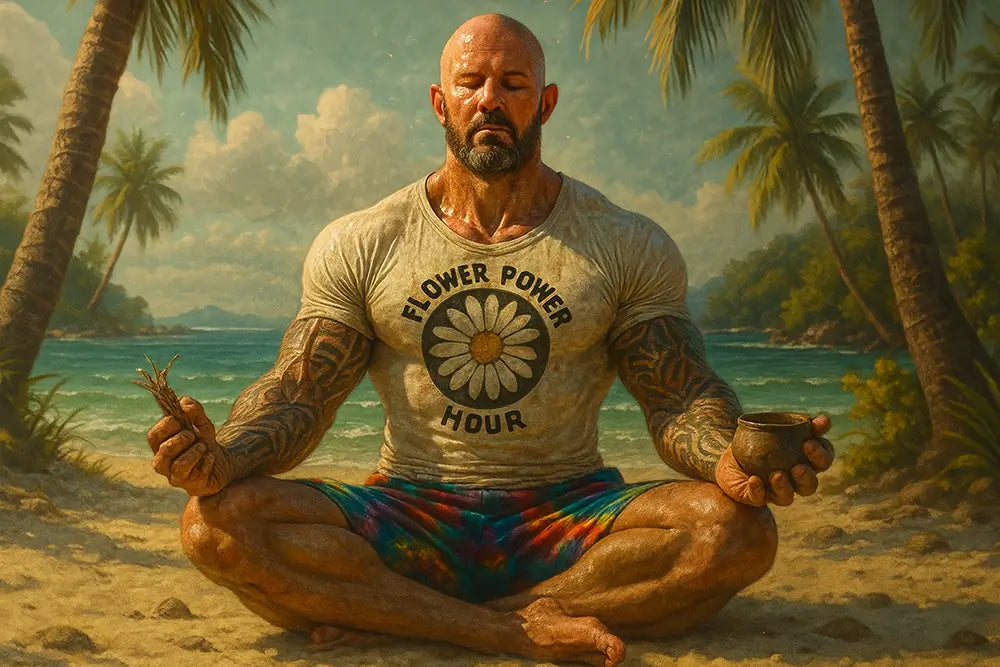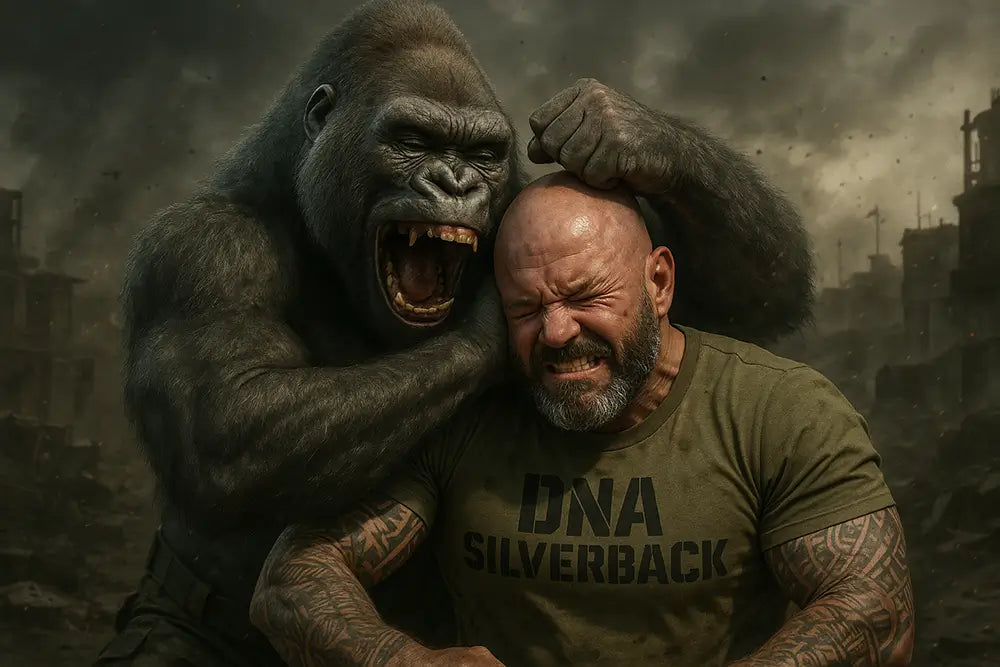The conversation around "toxic masculinity" has gained a lot of traction in recent years. But is masculinity itself truly the problem, or are we mistaking narcissistic traits for masculine ones? In this blog, we'll examine the core values of real masculinity, dissect the behaviours associated with narcissistic personality disorder, and make the case that "toxic masculinity" is a misnomer. As a "man's man", I take serious offence to the term "toxic masculinity" and the reason I wanted to delve into this topic.
The True Traits of Masculinity
Real masculinity has historically been associated with qualities that make men admirable, trustworthy, and, in many ways, heroic. Here are some key traits:
- Protective: Men with a strong sense of responsibility look out for their loved ones and community, offering safety and support.
- Kind: True masculinity includes compassion. The so-called "tough" guys you see in Hollywood action movies? They’re often portrayed with a kind heart beneath the rough exterior.
- Loyal: Men of honour value loyalty - whether to family, friends, or principles.
- Respectful: Respect for others and oneself is a hallmark of mature masculinity.
- Accountable: Real men own their mistakes and take responsibility for their actions.
- Empathetic: Men who practice empathy connect deeply with others and understand their needs.
- Sincere: Authentic masculinity is straightforward and sincere, avoiding deception.
- Resourceful: Men who embody true masculinity know how to think on their feet and make things work in challenging situations.
If these are the qualities associated with masculinity, then calling masculinity "toxic" seems paradoxical. How can these virtues be both admirable and harmful? The answer is simple - they can’t.
There’s nothing "toxic" about a man who is protective, loyal, and respectful. In fact, these traits are the foundation of many admired fictional heroes - from Superman and Captain America to John McClane in Die Hard.
These men are celebrated for their strength, bravery, and dedication to others. They are admired, not feared or resented. So, why is masculinity itself being questioned?

The Real Issue: Narcissistic Personality Disorder
What people often label as "toxic masculinity" is actually a symptom of something entirely different: narcissistic personality disorder (NPD).
Narcissism is part of the "Dark Triad" of personality traits, along with Machiavellianism and psychopathy, that can cause destructive behaviour in relationships and society. Here are the core traits of NPD that get mistaken for "toxic masculinity":
- Grandiosity: Narcissists believe they’re better than everyone else. This isn't confidence - it’s an inflated sense of self that makes them think they’re untouchable.
- Lack of Empathy: Unlike genuinely empathetic men, narcissists can’t relate to others’ feelings. This makes them manipulative and indifferent to the pain they cause.
- Entitlement: Narcissists believe the world owes them, and they’ll take advantage of others without guilt or remorse.
- Exploitation: These individuals use people for their own gain, without regard for the consequences.
- Arrogance: Narcissists look down on others, believing they’re inherently superior.
When we look at these traits, it’s clear they’re the opposite of what real masculinity represents. Narcissistic men lack accountability, empathy, and respect for others. They are, by definition, incapable of the honourable qualities that define true masculinity.
Far from being "real men," narcissists are essentially emotional predators who thrive on manipulation and self-absorption.

Narcissists Are Not "Real Men"
True masculinity, by its very nature, rejects cowardly behaviour. A real man doesn’t prey on the weak; he protects them.
A narcissist, on the other hand, is the first to flee when faced with a genuine challenge. He’s the type who bullies those he perceives as weaker and hides from anyone who might actually push back.
You’ll never see a narcissist engage in a confrontation with a real man. They know they can’t win, so they target those who are less likely to fight back, and if anyone disagrees with me on this, I am happy to have the discussion in person. I say discussion but I would have very little to say.
Instead of blaming masculinity for harmful behaviours, we need to look at the root cause: personality disorders like narcissism. "Toxic masculinity" blames the very traits that, in a healthy form, are protective and positive.
It's time to stop labelling masculinity as "toxic" and start recognising the real issue.
The Role of Testosterone in Healthy Masculinity
It's worth noting that testosterone, the hormone most often associated with masculinity, plays a role in promoting these positive, protective traits.
For men experiencing andropause or low testosterone, they may feel a decrease in their energy levels, motivation, and protective instincts. Boosting testosterone levels through natural testosterone boosters, testosterone supplements, or lifestyle changes can help men maintain their sense of well-being and masculinity.
Supplements like Ashwagandha are shown to support natural testosterone production, helping men remain energetic, resilient, and emotionally balanced.
For those curious about options, consider:
- Testosterone Boosters: DNA's range of Natural supplements promote testosterone production, improving mood, energy, and vitality.
- Supplements for Andropause: Andropause, or "male menopause," affects many men in midlife, leading to decreased testosterone. Specific supplements such as DNA's Silverback can help mitigate these effects.
- Increase Testosterone Naturally: Lifestyle choices, such as exercise and diet, can play a big role in naturally boosting testosterone and promoting health.
A man with healthy testosterone levels is often more likely to exhibit the positive traits associated with real masculinity: accountability, protectiveness, and loyalty.
Shifting the Conversation: Masculinity Isn't the Enemy
If we're serious about addressing the issues often lumped under "toxic masculinity," we need to make a critical distinction.
Masculinity itself isn’t the problem; the issue lies in narcissistic, exploitative behaviour. By conflating the two, society only stigmatizes masculinity and misses an opportunity to address narcissism as the real culprit.
Narcissism is a serious personality disorder that demands understanding, diagnosis, and appropriate treatment. If we want a healthier society, we should encourage men to embrace their true masculinity and teach them to avoid the pitfalls of narcissism and other destructive behaviours.
Final Thoughts
The term "toxic masculinity" might be popular, but it's misleading. What we’re really dealing with isn’t masculinity gone wrong; it’s narcissism disguised as masculinity.
True masculinity is protective, empathetic, and sincere.
Let’s stop blaming masculinity and start addressing the real problem. By supporting men in maintaining healthy testosterone levels and encouraging positive traits, we can foster a culture where masculinity is celebrated, not condemned.






Share:
Magnesium: The Hidden Testosterone Booster You Didn’t Know You Needed! 🧲💪
How Mike Tyson’s Testosterone Boost Has Him Ready to Knock Out Jake Paul at 58 🥊💥